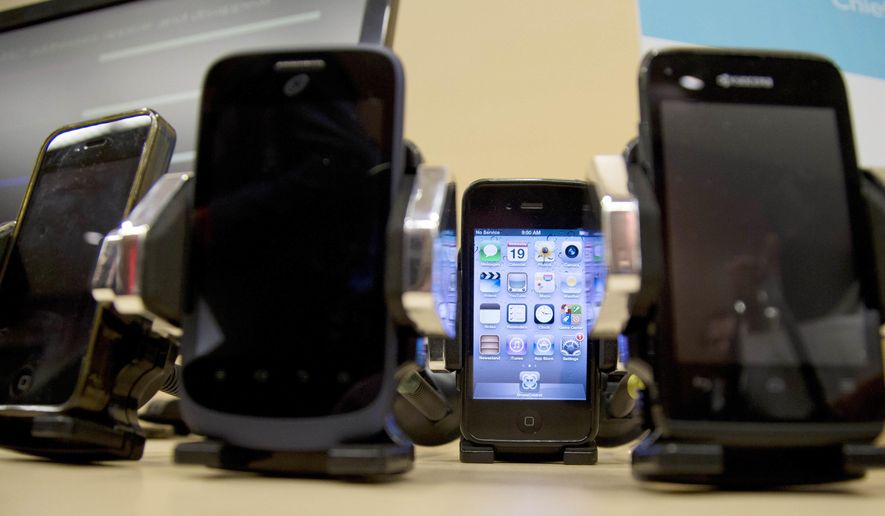The American Civil Liberties Union filed a lawsuit in federal court Wednesday challenging the government’s policy permitting searches of travelers’ cell phones as they enter the U.S., calling it a violation of privacy rights.
The ACLU filed on behalf of 11 people who had their electronic devices searched without probable cause. In four cases, the government kept the plaintiffs’ phones for weeks or even months, the lawsuit says.
The lawsuit comes at a time when Homeland Security is stepping up border searches, but has struggled to explain exactly what officers are looking for. Only a tiny fraction of travelers — less than a hundredth of one percent — actually face a search, but the numbers have been growing, reaching a rate of 82 searches a day as of earlier this year — more than three times the rate in 2015.
Customs and Border Protection officials say they’re trying to “enforce the nation’s laws in this digital age,” and say they’ve found information on potential terrorist plots, child pornography, visa fraud and violations of export laws.
But CBP has been unable to say how many terrorist plots have been disrupted by the searches.
The ACLU, in the new lawsuit, said the searches mark a major breach of faith with privacy protections.
“The volume and detail of personal data contained on these devices provides a comprehensive picture of travelers’ private lives, making mobile electronic devices unlike luggage or other items that travelers bring across the border,” the lawsuit said.
CBP and another immigration agency, U.S. Immigration and Customs Enforcement (ICE) — both part of the Homeland Security Department — have policies allowing border searches of electronic devices without first obtaining a warrant or demonstrating probable cause.
In most cases the search is instantaneous, but sometimes officers will hold the device — which can be a smartphone, laptop, tablet or other electronic storage medium — to do a more thorough check.
CBP didn’t respond to a request for comment Wednesday.
One of the plaintiffs in the new lawsuit, Matthew Wright, a computer programmer, traveled to southeast Asia in 2016 for Ultimate Frisbee tournaments, then returned back to the U.S.
A CBP officer singled him out upon his arrival in Denver, pulled out his laptop and demanded he unlock the machine for them. He declined, so the officer confiscated his laptop, phone and camera, the lawsuit said. The government only told him it wanted to conduct a “further forensic review.”
CBP attempted to create a duplicate image of the laptop, and copied data from his phone and camera, but didn’t find any “derogatory” information, the lawsuit says. The agency returned the devices after 56 days, though the lawsuit claims CBP is still holding onto the information it took.
In other instances, plaintiffs said they felt “coerced” into providing passwords or unlocking their phones so officers could scour their files.
Even information that would normally be protected by lawyer-client privilege could be searched under the CBP policy, while the ICE policy allows for searching even in cases of confidential medical or business information, the ACLU says in the lawsuit.
CBP says that when it comes across that information, it is required to keep it confidential. The agency insists it has “strict oversight policies” to keep the operation legal.
One of the plaintiffs in the lawsuit is a journalism student who had his schoolwork on his laptop, raising First Amendment press-freedom issues as well.
The Reporters Committee for Freedom of the Press wrote a letter to the Homeland Security inspector general earlier this year saying searches of journalists’ devices have become alarming.
• Stephen Dinan can be reached at sdinan@washingtontimes.com.




Please read our comment policy before commenting.